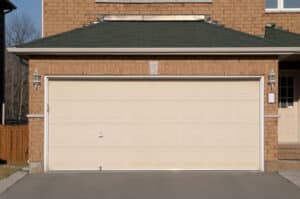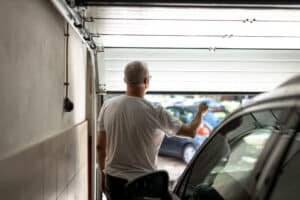When to Repair vs. Replace Your Garage Door Opener in Parker
Table of Contents
- Key Takeaways
- What a Repair Can Handle
- When Replacement Makes More Sense
- Comparing Repair and Replacement Costs
- Should You Repair or Replace Your Opener?
If your garage door opener in Parker has started acting up—maybe it’s louder than it used to be, opens slower, or works only when it feels like it—you might be asking the big question: should you fix it or replace it?
Garage door openers don’t last forever. But not every issue means it’s time for a brand-new system. Some problems are small, quick to handle, and not worth tossing the whole thing over. Others hint at deeper wear, compatibility problems, or outdated tech. Knowing the difference can save you time, money, and headaches.
Select Garage Doors is your trusted team in Parker when you need help deciding what comes next. Contact us today to schedule a diagnostic visit or speak with a local garage door expert.
Key Takeaways
- Repairs are ideal for smaller issues like stripped gears, remote or sensor problems, loose chains, or circuit board failures, especially in openers that are under 10 years old and haven’t required much maintenance.
- Replacement may be the better option if your opener is over 10 years old, lacks modern safety features, requires frequent repairs, makes loud noises, or you’re upgrading to a smart home system.
- Repair costs typically range from $100 to $300, while replacement costs range from $350 to $650 for standard models. Smart models or high-end openers may cost more.
- Consider replacing if repair costs approach half the price of a new unit, your warranty has expired, your opener isn’t compatible with your door, or you’re planning to sell your home and want an updated, secure system.
- If your opener is still reliable and meets your needs, a repair is likely the best choice. However, if it’s showing signs of aging or frequent malfunction, a replacement could provide better performance and long-term reliability.
What a Repair Can Handle
There are plenty of times when a repair is all you need. Some problems show up fast but have simple causes.
- Stripped Gears: These wear down over time and prevent the opener from fully engaging. Replacing them is often straightforward and affordable.
Remote or Sensor Issues: Sometimes, it’s the remote or sensor causing trouble—not the opener itself. Misaligned safety sensors or dead batteries can be fixed in minutes.
- Loose Chains or Belts: These parts stretch with use. Tightening or replacing them doesn’t require replacing the entire opener.
- Electrical Shortages or Circuit Board Failure: If your unit doesn’t power on or responds irregularly, a damaged circuit board could be to blame. These can often be replaced without needing a new system.
Repairs work well when the opener is still relatively new (under 10 years old), hasn’t needed much attention in the past, and still supports the type of garage door you have.
When Replacement Makes More Sense
Now, if your opener keeps acting up—or just feels outdated—it might be time to replace it altogether.
Here are a few signs pointing that way:
1. Your Opener Is 10–15+ Years Old
Openers aren’t made to last forever. After a decade, even the well-maintained ones start to wear out. The motor gets weaker, response times slow down, and you might notice new noises that weren’t there before. If your opener is older and not keeping up, replacement is often the smarter investment.
2. It Lacks Modern Safety and Security Features
Older openers may not support rolling-code technology, which helps prevent break-ins. They might also be missing features like auto-reverse sensors, which stop the door if something is underneath it. Newer models are quieter, more efficient, and safer for families with kids or pets.
3. Frequent Repairs Are Adding Up
If you’ve had to call for service more than once or twice in the past year, you’re likely spending more on repairs than you would on a new system. While fixing things piece by piece might seem cheaper at first, those costs add up quickly—and you’re still stuck with an old opener that could stop working again at any time.
4. The Motor Struggles or Sounds Loud
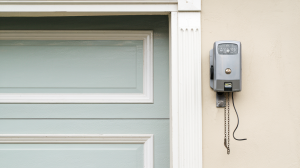
5. You’re Upgrading to a Smart Home
If you’re modernizing your Parker home, your garage door opener should keep up. Smart openers can be controlled through your phone, alert you when the door opens or closes, and even connect with Amazon Key or Google Assistant. If your current system doesn’t support any of that, a new opener can make life easier—and more secure.
Comparing Repair and Replacement Costs
A basic garage door opener repair can run anywhere from $100 to $300, depending on the part and labor. Full replacement, on the other hand, might cost between $350 and $650 for standard models. High-end, smart openers with quiet motors and wireless access could cost more.
So when does it make sense to upgrade instead of fixing?
- If repair costs are nearing half the price of a new unit.
- If your warranty has expired.
- If your door isn’t compatible with your current opener.
- If you’re planning to sell your home and want it to feel more modern and secure.
Should You Repair or Replace Your Opener?
Deciding between a repair or replacement doesn’t have to be overwhelming. If your opener still works well, hasn’t needed many repairs, and matches your needs, a fix is likely the right move.
But if it’s older, acting up often, or doesn’t support the functions you want, replacing it may be the better option—especially when you factor in improved performance and reliability.
Select Garage Doors proudly serves Parker homeowners with honest assessments and expert garage door solutions. Call us today to book your appointment and get the clarity you need to move forward confidently.
REQUEST A QUOTE
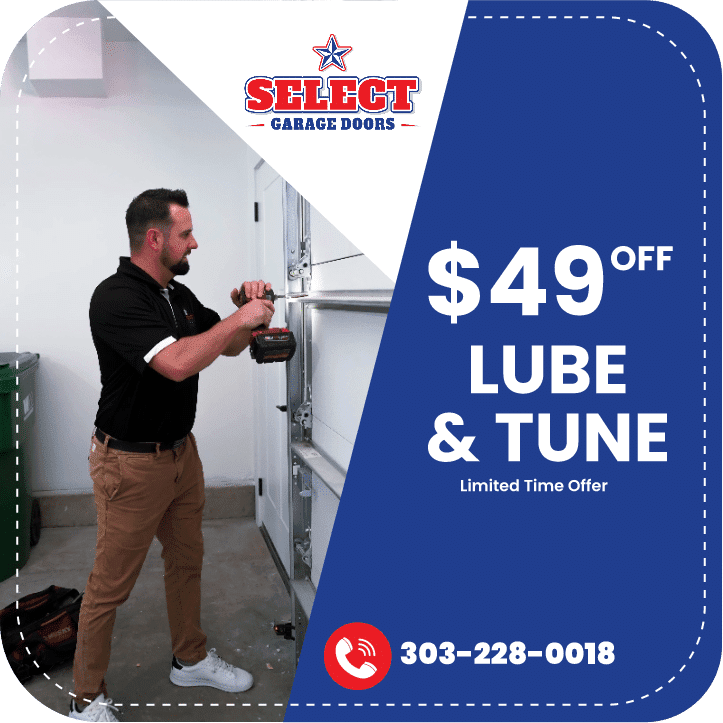
Our Services
Service Areas
Service Areas
WE SERVICE COLORADO SPRINGS, PARKER, LAKEWOOD AND SURROUNDING AREAS


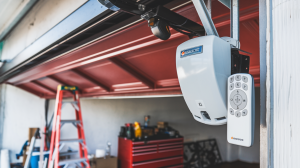 Remote or Sensor Issues: Sometimes, it’s the remote or sensor causing trouble—not the opener itself. Misaligned safety sensors or dead batteries can be fixed in minutes.
Remote or Sensor Issues: Sometimes, it’s the remote or sensor causing trouble—not the opener itself. Misaligned safety sensors or dead batteries can be fixed in minutes.